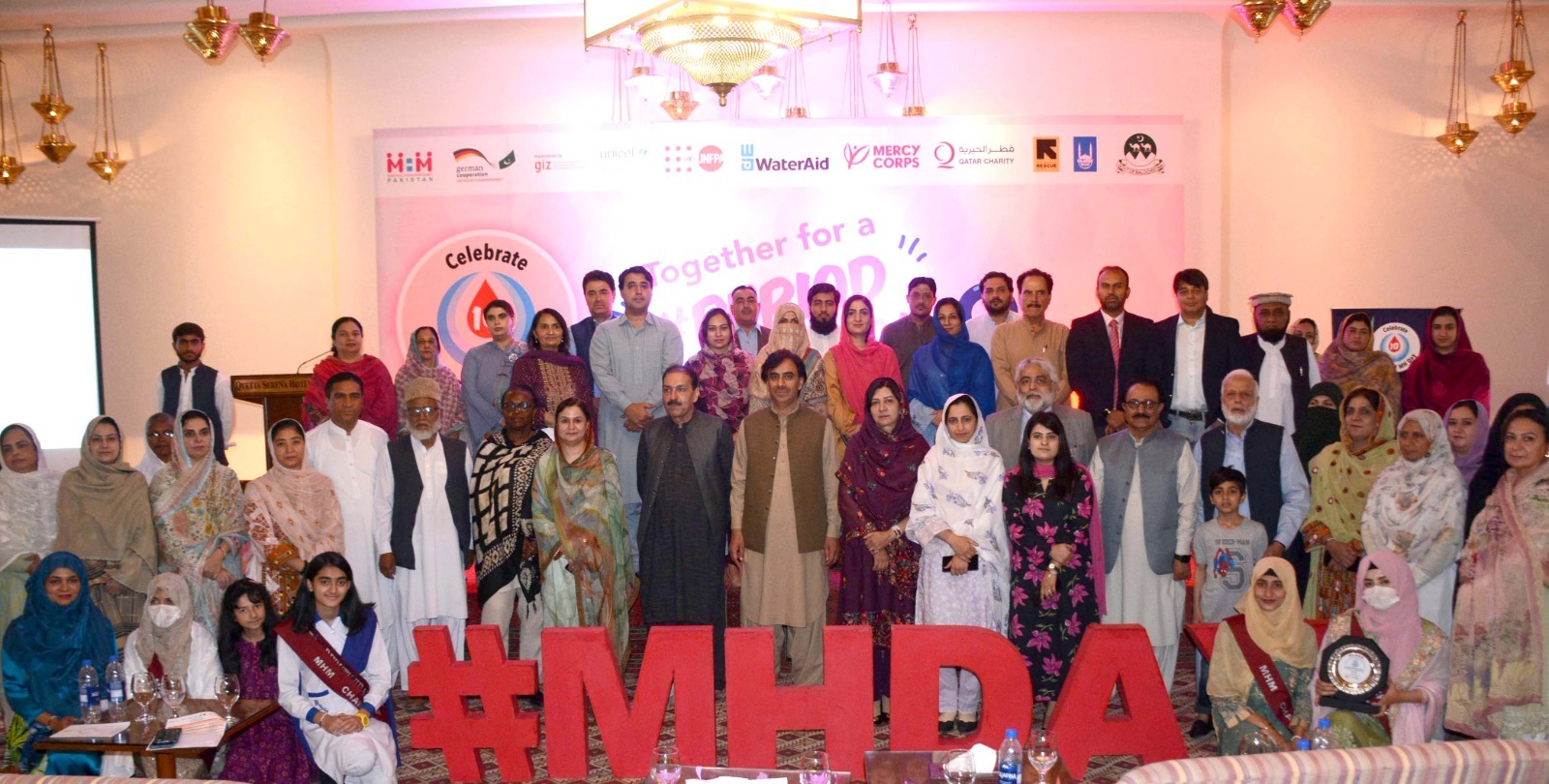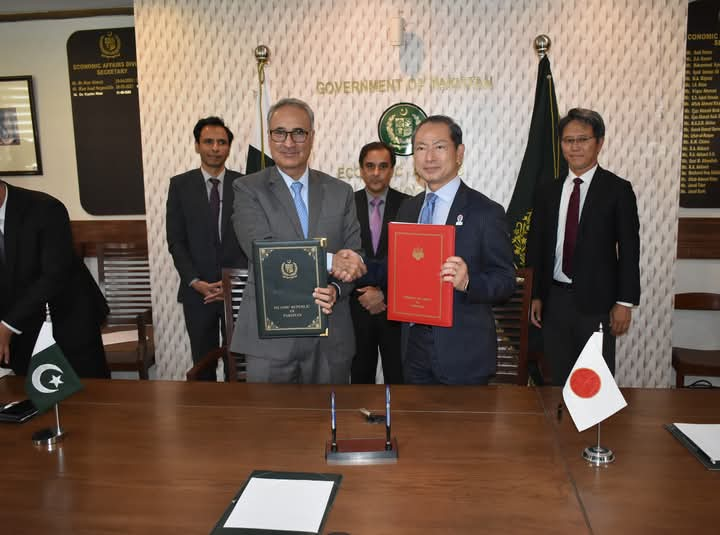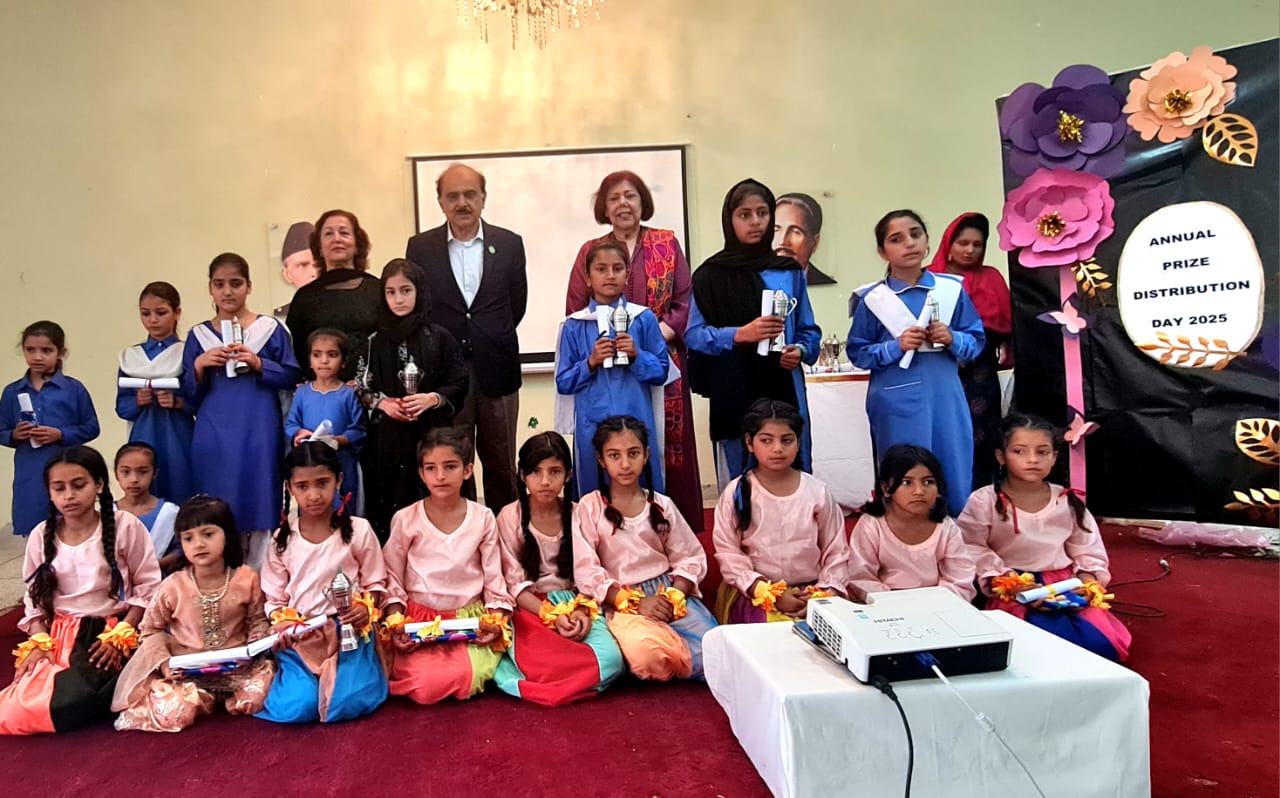Period Power: Champions to Tackle MHM Challenges in Balochistan
By Shafqat Aziz
In a significant step towards improving menstrual hygiene management (MHM) for women and girls in Pakistan, the Menstrual Hygiene Management Working Group (MHMWG) Secretariat, Balochistan held a special event in Quetta in recognition of International Menstrual Hygiene Day 2024, highlighted the challenges faced by menstruators and emphasized the importance of accessible hygiene products and education.
The global event, crucial for the well-being of millions of women and girls, was supported by a consortium of organizations including GIZ, UNICEF, UNFPA, Water Aid, Mercy Corps, IRC, Qatar Charity, Islamic Relief, and other members of the MHMWG. Representatives from Balochistan’s government departments, including Health and Education, alongside academicians, civil society organizations (CSOs), and media personnel, participated in the event.
The event underscored the critical need to address the stigma and lack of awareness surrounding menstruation. Mr. Abdullah Khan, Secretary Population, Balochistan, emphasized, “The stigma and ignorance related to MH can be a serious health hazard. Therefore, we need to educate society about safe menstrual health practices and make hygiene products accessible to all menstruating women and adolescent girls.”
Educating parents and girls is crucial for dismantling the taboos and fostering a culture of open communication. By prioritizing education and awareness programs, the MHMWG aims to empower individuals to manage their periods with confidence and dignity.
Dr. Tahira Kamal Baloch, Chairperson MHMWG, shed light on the group’s impactful work in raising awareness and initiating dialogues across Balochistan. She highlighted the collaborative efforts with partner organizations, expressing optimism that these endeavors will cultivate a more women- and girl-friendly society.
UNICEF’s Chief of Field Office Balochistan, Maryam Darwesh on the occasion asserted on the collaborative efforts to improve the lives of millions of women and girls of Balochistan and said promoting MHM has a vital role to make it happen. She said UNICEF would continue to support initiatives aiming at empowering women and girls. Ms Fouzia Shaheen, Chairperson Balochistan Commission for the Status of Women enlightened the audience how her departments is taking the agenda of women empowerment through various initiatives and policies.
Apart from this event, the development of a Provincial MHM Policy with the support of GIZ is another encouraging step towards improving MHM. Rabia Baloch while representing GIZ informed that participants this policy aims to further enhance accessibility and awareness of MH products and facilities across the Balochistan region while her organization is taking several other measures across Pakistan to promote MHM. #NoChutti Campaign has also been started recently which specifically targets the issue of school absenteeism experienced by many girls due to inadequate menstrual hygiene facilities. The campaign strives to create an enabling environment within schools, ensuring access to clean and private washrooms with essential hygiene products. This not only empowers girls to stay in school but also promotes menstrual health literacy and reduces the risk of infections.
In a message, Kiran Qazi- WASH Officer MHH lead UNICEF Pakistan “Together,” we can create a word where menstruation is no longer a barrier but a natural process of life for all girls and women.” Attention to ongoing policy efforts aimed at improving access to MH products and facilities. Participants were informed about the ongoing discussions at the federal and provincial levels regarding tax reforms for MHM products,
Meanwhile, the MHMWG event in Quetta served as a powerful platform to showcase the collective efforts towards ensuring menstrual hygiene as a fundamental right for all. The event featured essay writing competitions among students, animations, and video documentaries to raise awareness about MH issues and challenges. The speakers also lauded the dynamic role played by the women parliamentarians from Balochistan, especially Ms Rahila Durrani, Education Minister, and Ms Rubaba Buledi, Minister for Women Development as their support and efforts played a remarkable role in strengthening the discourse around MHM in the province. In education sector, Munir Ahmad, Director Education and Zulaikha Karim Buledi and eminent expert Irfan Awan have emerged as a hope for girl students and women otherwise for standing with MHM agenda.
This initiative by the MHMWG and its partners goes beyond a single event. It serves as a call to action for continued collaboration amongst stakeholders – government bodies, NGOs, educational institutions, and media – to create a future where menstruation is openly discussed, managed hygienically, and destigmatized. By prioritizing menstrual health and hygiene, we can empower women and girls to reach their full potential and contribute meaningfully to society. It is encouraging to see that UNFPA and Water Aid has also joined the cause of ensuring period justice across Balochistan.
• Shafqat Aziz is an Islamabad based analyst and Policy Advocacy Specialist




